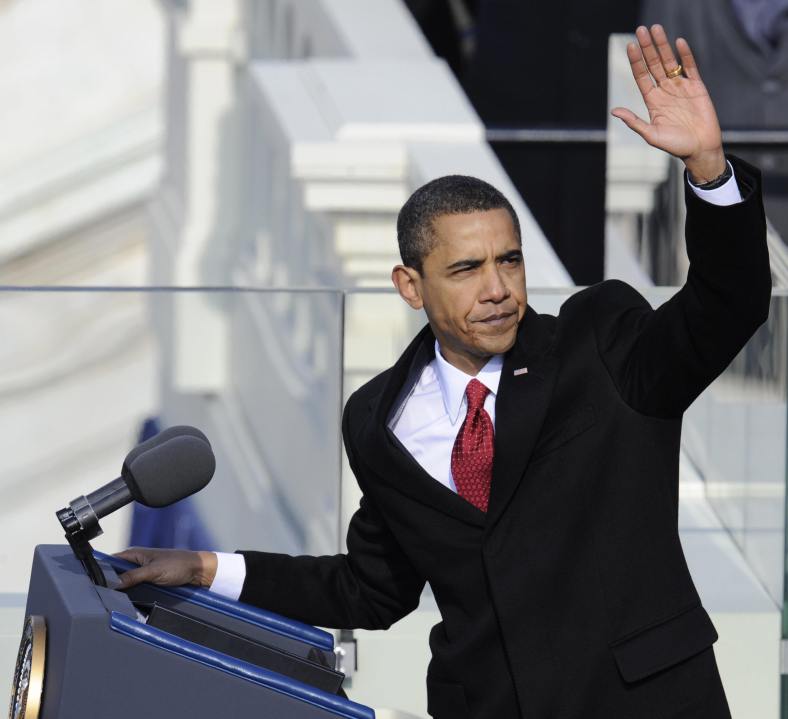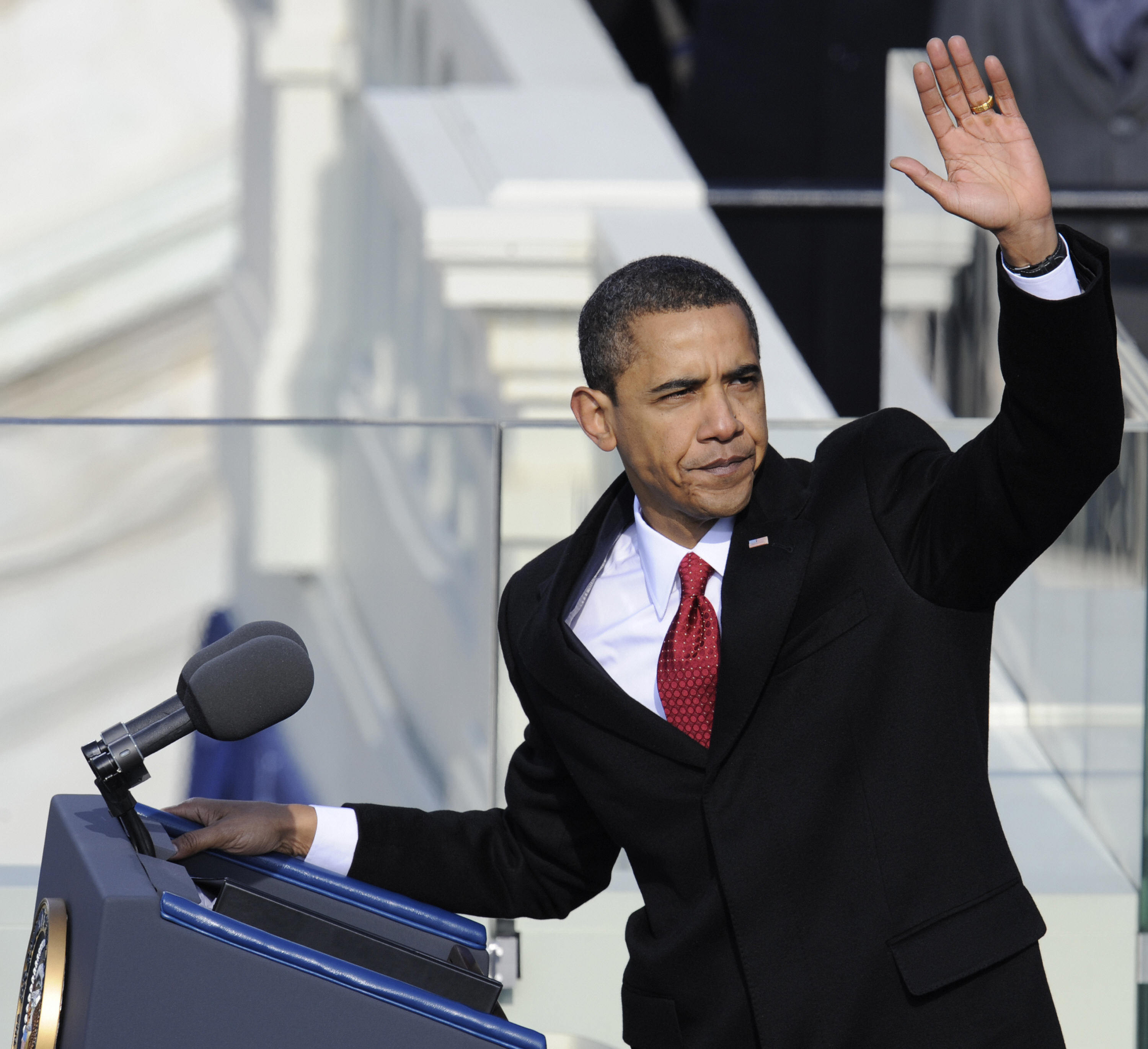 I’d call what we watched on television earlier a religious ceremony – I suppose it might have been the biggest in history. In a sense it was rather like an church wedding – a religious ceremony with such an important secular function that one is apt to be a bit surprised when the vicar starts referring to God. The pastor who said the inaugural prayers, Rick Warren, was like an unexpectedly charismatic vicar at a wedding, refusing to be a mere holy prop. This ‘religious bit’ isn’t ceremonial background, his big voice insisted. There was no retreat behind antique religious language, as you get in our grand occasions of state. There was plainness, directness, sincerity – a shocking lack of shame about public religion.
I’d call what we watched on television earlier a religious ceremony – I suppose it might have been the biggest in history. In a sense it was rather like an church wedding – a religious ceremony with such an important secular function that one is apt to be a bit surprised when the vicar starts referring to God. The pastor who said the inaugural prayers, Rick Warren, was like an unexpectedly charismatic vicar at a wedding, refusing to be a mere holy prop. This ‘religious bit’ isn’t ceremonial background, his big voice insisted. There was no retreat behind antique religious language, as you get in our grand occasions of state. There was plainness, directness, sincerity – a shocking lack of shame about public religion.
Obama fumbled his big lines like a bridegroom, bless him. But his speech was very fine. Like all good sermons it set out the problem (the sense of a sapping of American confidence) with slightly worrying realism, awkwardly brutal honesty. And then it gradually got the curative rheotric into gear. He invoked the ‘God-given principle that all are equal, all are free’, with a lovely civil-rights elongation of the ‘all’s. Towards the end there were echoes of Isaiah: ‘old hatreds shall someday pass’, we must work for ‘a new era of peace’.
These prophetic echoes were repeated by the old black minister who said the final prayers: he nicely updated ‘swords into ploughshares’ into ‘tanks into tractors’, and quoted the Old Testament’s most emotive line of all, about God’s righteouness covering the earth like the waters cover the sea. When he spoke these words the camera cut to the new president, who, with closed eyes, moved his head slightly, as if drinking the heady words in. We live by this ancient prophetic vision, America was saying, with clarity and pride. If you think about it, this is remarkable.
The idea that religion and politics are separate things is a necessary fiction. America knows this better than us, on two fronts: it knows that legal separation is necessary, and it knows that the overlap of religion and politics must sometimes be openly asserted, for politics to be renewed. America has always known this, of course. But Obama has internalised the knowledge, built his political identity on it. He believes that the machinery of government can only do so much to fix social problems, what David Cameron calls the broken society. Its deep fixing will take a change of heart – religious rhetoric is appropriate. The British response at this point is to back off a bit, rhetorically, to remember with a tight smile that the machinery of government is all that a politician has at his disposal. Not so, says Obama’s tradition: the politician also has rhetoric, which is no respecter of boundaries between politics and religion – and he has the right and duty to use it, to change the hearts of his hearers.








Comments